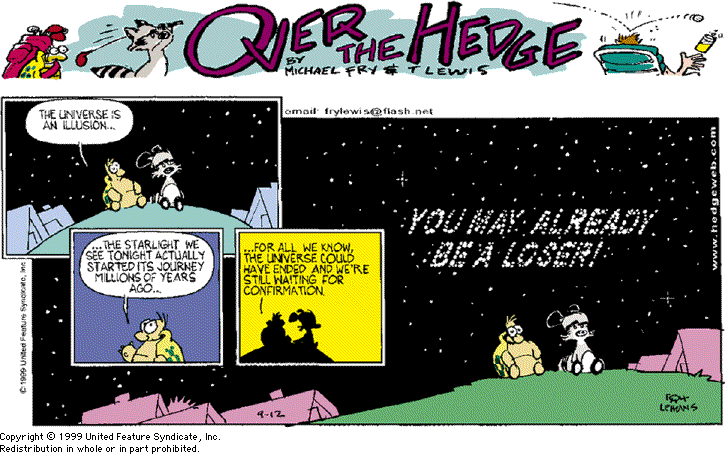

Lookback Time:
The speed of light (299,790 km/sec) is very fast, but finite. For any phenomenon on the Earth's surface, the distances are small enough that light signals appear instantaneous. However, the distances in space are vast. And, in particular, the distance between galaxies are measured in hundreds of millions of light-years. Thus, the time for light to travel from distance galaxies is on the order of hundreds of millions of years up to billions of years for the most distant objects.
This effect can be of an advantage to astronomers. The more distant an object, the farther in its past we are observing its light. Combined with the cosmological principle, the fact that the Universe is homogeneous at all points and all times, then the finite speed of light means that observation so distant galaxies are equivalent to lookback time. Lookback time is what makes the subfield of galaxy evolution possible, the ability to study the changes in galaxies with time by observing them at various distances means equals different epochs.
Excerpt from the Encyclopedia Britannica without permission.